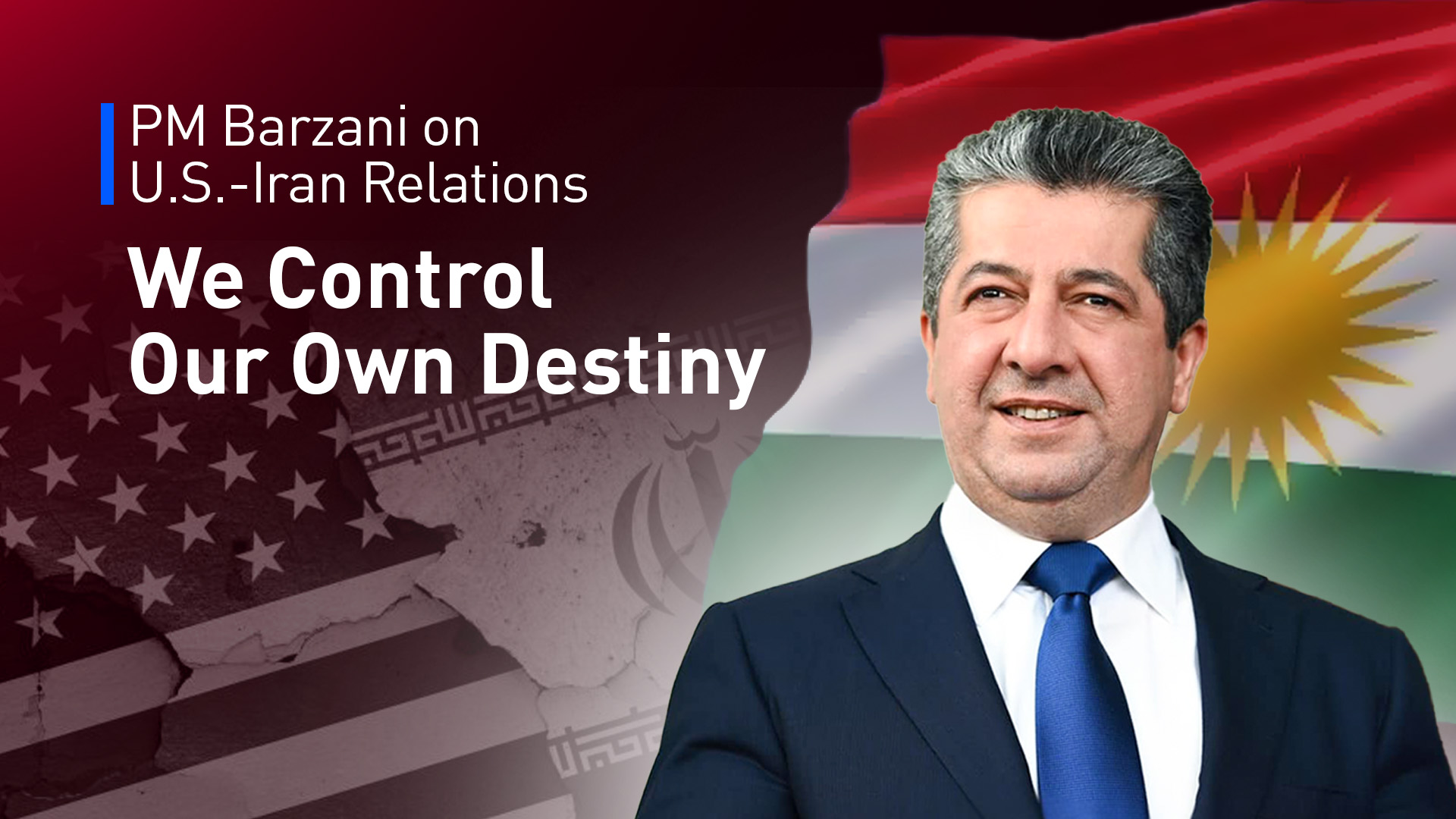PM Barzani on U.S.-Iran Relations: ‘We Control Our Own Destiny’
PM Barzani addressed Kurdistan’s diplomatic balancing act between the U.S. and Iran. Despite tensions between Washington and Tehran, the KRG has managed to maintain productive relationships with both nations.

ERBIL (Kurdistan 24) – In an exclusive interview with Al-Arabiya, Kurdistan Region Prime Minister Masrour Barzani addressed key regional developments, security challenges, and the Kurdistan Region’s strategic relationship with the United States.
He reiterated the Kurdistan Regional Government's (KRG) commitment to counterterrorism efforts and its role in maintaining regional stability, while also dismissing unfounded allegations regarding Israeli presence in Kurdistan.
Kurdistan’s Strategic Balancing Act with Iran and the U.S.
The Prime Minister also addressed Kurdistan’s diplomatic balancing act between the U.S. and Iran. Despite tensions between Washington and Tehran, the KRG has managed to maintain productive relationships with both nations.
“We control our own destiny and make our own decisions,” he asserted.
“We have good relations with the U.S. and are proud of them. At the same time, we share a long border with Iran, which is our neighbor. Our relations with Iran are currently good. While there have been tensions in the past due to misunderstandings, we have moved past them. Our approach is based on mutual respect,” PM Barzani asserted.
Kurdistan Region’s Strong Ties with the United States
Prime Minister Barzani underscored the long-standing partnership between the Kurdistan Region and the U.S., which has been instrumental in combating ISIS and supporting stabilization efforts in Iraq.
“We have good relations with the United States, which has been a great supporter of Iraq in general and Kurdistan in particular,” he stated. “The U.S. has provided assistance since the fall of the previous regime, and we have developed strong relations with all key American actors. We appreciate the support we have received as allies in the war against terrorism and stabilization efforts in the region.”
Future of Coalition Forces in Iraq and Kurdistan
When asked about the potential reduction of international coalition forces in Iraq, Prime Minister Barzani acknowledged the evolving situation and its implications for regional security.
He noted that the initial plan envisioned coalition forces withdrawing from Iraq by the end of 2025, with their presence in the Kurdistan Region continuing until 2026. However, he suggested that shifting regional dynamics might prompt a reassessment of this timeline.
“There may be new developments or agreements, and perhaps a reassessment of the situation will determine the duration and number of forces staying in the region,” he explained. “Ultimately, this is a decision for the U.S. government.”
PM Barzani also confirmed ongoing engagement with the federal government in Baghdad regarding the status of coalition forces.
“We are in constant communication with the federal government and participate in dialogue with coalition forces,” he said. “Baghdad appears to be reassessing its position regarding the timeline for coalition forces, given recent developments.”
Kurdistan’s Role in Countering Security Threats
The Prime Minister highlighted Kurdistan’s crucial role in combating security threats, particularly in preventing the resurgence of ISIS. He stressed that the presence of coalition forces is a stabilizing factor for Iraq and the region.
“We have expressed the Kurdistan Region’s willingness to host coalition forces, recognizing the security risks and challenges we all face,” he said. “This is about ensuring stability, not just for Kurdistan, but for Iraq and the broader region.”
Addressing Baseless Accusations Against the Kurdistan Region
Prime Minister Barzani also dismissed long-standing claims that the Kurdistan Region harbors Israeli intelligence or diplomatic missions. He described these allegations as baseless and politically motivated.
“These accusations have never been proven and are completely false,” he stated. “There are no Israelis in the Kurdistan Region. Unfortunately, these allegations come from those who have no justification for attacking the Kurdistan Region. They fabricate these claims to justify their misbehavior or unjustified attacks on us.”
PM Barzani challenged those making the accusations to provide evidence, emphasizing that the Kurdistan Region remains committed to transparency and peaceful diplomatic relations with all international partners.
As regional tensions persist and security dynamics evolve, the Kurdistan Region continues to position itself as a key player in maintaining stability in Iraq and the wider Middle East. Prime Minister Barzani’s remarks underscore Kurdistan’s commitment to strong alliances, counterterrorism, and balanced diplomacy, ensuring that the region remains a vital partner for both regional and international stakeholders.